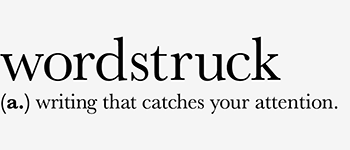Meaning. It’s something our minds instinctively reach out for. I was reminded of this whilst listening to some music as I worked on a piece of writing last week. The lyrics of a familiar song took on a new resonance, because of what I was writing about, and I discovered a meaning in them that I hadn’t noticed before.
As human beings we are supremely adept at recognising patterns and seeking out connections. I once took part in a writing exercise that demonstrates this beautifully.
As a group, we were each asked to write a haiku – a Japanese verse form of three lines, made up of five, seven and five syllables. We wrote the last line separately from the first two, then mixed them up and paired them at random to form a new haiku.
You might think the results would be meaningless. But it was amazing how often the last line, although written by someone thinking of an entirely different subject, fitted perfectly and how it drew out new themes from the ones that preceeded it. That was a result of our minds creating connections, seeking out meaning.
Of course, in business writing, you don’t want to make a customer have to work as hard as we did with our haiku to discover the message you’re trying to convey.
Straight, clear, simple and direct is the best way to ensure attention from busy eyes surrounded by thousands of messages every day. Yet there still needs to be space for the reader to get involved and create meaning for themselves.
I use an example in my writing workshops of a message that, in trying to tell you what a complex product does, actually blurs any kind of understanding, because it bombards you with a paragraph of over 40 words. It ends up being empty verbage, and so difficult to read that people get stuck half way through and have to go back to the beginning to try and make any sense of it.
In its over exuberance, trying to tell you everything you ever needed to know in one go, it loses connection with its audience. It’s not helped by the fact that it’s a single sentence full of meaningful sounding, but intangible words like flexibility, stability and strategic.
Connecting with an audience, is often about helping them make the mental leap to think ‘that applies to me’. Using tangible terms really helps. So, for example, showing how something could “help you work just as well in the office as out of it”, rather than using an intangible word like ‘flexibility’, can really help your readers understand what it would be like to use the product or service.
If, as a writer, I can make someone think ‘yes, that’s just like me…’ or ‘I’d like that…’, then I’ve caught their attention and they’re more likely to carry on reading to discover more.


Comments are closed.